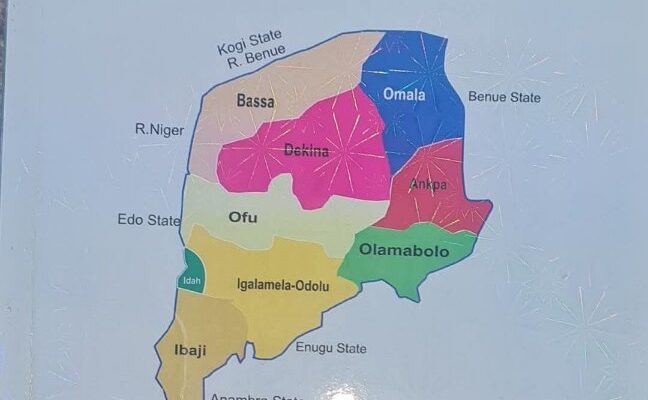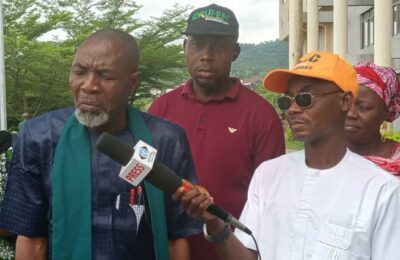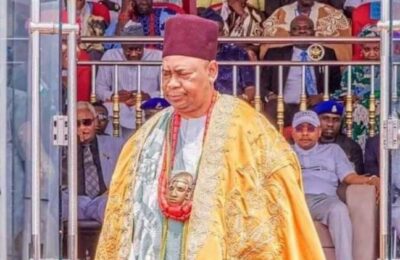In Kogi State, Nigeria, a rising chorus of calls for political autonomy is growing louder, with many residents of the Eastern region demanding the creation of Okura State. This plea for statehood represents more than just a political shift—it is a call for equitable representation, economic development, and a governance structure that can better meet the needs of the people. For the communities in Igalaland, the push for a new state is akin to a divorce, seeking separation from Kogi’s political framework to form a self-governed entity that can more effectively serve its citizens.
The movement for Okura State has been gaining significant traction in recent years, with local leaders and advocacy groups highlighting the region’s underrepresentation and neglect by the state government. Despite contributing substantially to Kogi’s economic output, Igala and People have long been marginalized in the state’s political processes. The demand for a new state reflects broader frustrations over poor infrastructure, underdeveloped social services, and the feeling of political exclusion within the current framework.
The issue of state creation is not new to Nigeria’s political landscape, with various groups calling for autonomy based on regional identity, economic contributions, and administrative challenges. Historically, Nigeria has created states to promote fairer resource distribution and to give voice to various ethnic and regional groups. However, these efforts have often fallen short in delivering the intended results. Okura’s demand for statehood is grounded in the belief that Kogi’s current political structure does not adequately cater to the distinct needs, culture, and aspirations of the people.
Despite Kogi East’s significant contributions to the state’s economy, particularly in agriculture and natural resources, its communities remain among the most underdeveloped in Kogi. Local leaders argue that the creation of Okura State would allow for more targeted governance, greater access to resources, and focused development in sectors like agriculture, education, and healthcare.
“The cry for Okura State is a call for justice and equity,” says Prince Nuhu Akpa, a prominent advocate for the Okura State movement. “We want the chance to govern ourselves, to direct our own future, and to ensure that the wealth of our land benefits our people directly. We can no longer continue to exist as an afterthought in Kogi’s political structure.”
The call for statehood is largely driven by the region’s economic underdevelopment. Despite having vast agricultural and mineral resources, Okura has seen little growth due to inadequate government attention. Advocates for Okura State believe that localized control over resources would spur economic growth, create jobs, and address the region’s pressing infrastructure needs.
Moreover, Kogi East residents feel increasingly disconnected from the political decisions made in Lokoja, the capital of Kogi State. This disconnect has fueled a sense of alienation, with many believing that their voices are not adequately represented in the state government. “The people of Okura deserve to have their concerns addressed at the national level,” says Zainab Ibrahim, a community activist and educator. “We are not asking for anything extraordinary—just the right to self-governance and the opportunity to build a brighter future for our children.”
This desire for statehood has been framed by some as a “divorce” from Kogi, a move to break away from a political union that has failed to meet the region’s needs. Just as a divorce represents the end of an unequal relationship, the push for Okura State symbolizes a desire for a more balanced, mutually beneficial political arrangement, where resources are more equitably distributed and governance is more attuned to local realities.
The path to creating Okura State, however, is fraught with challenges. Nigeria’s constitution stipulates a complex and lengthy process for the creation of new states, requiring both political will from the federal government and broad support from existing political structures. Many fear that without strong political backing and a well-organized campaign, Okura’s push for statehood may be stymied.
Opponents of the movement argue that the creation of more states could lead to inefficiencies and economic strain, potentially stretching the nation’s resources further. There are also concerns about the political implications of such a move, with some fearing that it could spark instability. However, supporters contend that creating Okura State would empower local leaders to address the unique challenges of the region and could serve as a model for more localized, responsive governance across the country.
For Okura’s dream of statehood to become a reality, the movement will require a united effort from its people, political leaders, and advocacy groups. Lobbying for the constitutional amendments and political approvals needed to create a new state will require broad support from not only the local population but also other regions in Kogi State and the national government.
“The people of Okura must speak with one voice,” says Usman Aliyu, a youth leader in Okura. “We are ready to take the next step toward self-governance. This is not just for Okura, but for the prosperity of Nigeria as a whole.”
In conclusion, the demand for Okura State is not just a quest for political autonomy but also a struggle for fair governance, economic justice, and better representation. While the road to statehood is fraught with challenges, the determination of Igala’s people remains strong. As Nigeria’s political landscape continues to evolve, the push for states like Okura to stand on their own could provide important lessons in the future of Nigeria’s federal structure. Only time will tell if this call for autonomy will result in the creation of Okura State or if it will remain an unresolved echo in the halls of Nigeria’s political discourse.
– Inah Boniface Ocholi writes from Ayah – Igalamela/Odolu LGA, Kogi state.
08152094428 (SMS Only)




